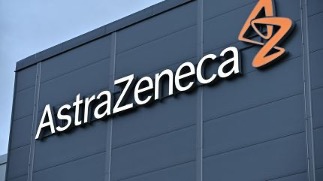AstraZeneca reports positive Phase III results for Imfinzi in small cell lung cancer
April 9, 2024
Source: drugdu
 362
362
 Though a recent Phase III trial failed to achieve its primary endpoint with Imfinzi (durvalumab) in a specific subset of non-small cell lung cancer (NSCLC), AstraZeneca has announced that another Phase III study evaluating the checkpoint inhibitor has demonstrated a survival benefit in patients with limited-state small cell lung cancer (LS-SCLC).
Though a recent Phase III trial failed to achieve its primary endpoint with Imfinzi (durvalumab) in a specific subset of non-small cell lung cancer (NSCLC), AstraZeneca has announced that another Phase III study evaluating the checkpoint inhibitor has demonstrated a survival benefit in patients with limited-state small cell lung cancer (LS-SCLC).
As per the 5 April press release, Imfinzi monotherapy demonstrated statistically and clinically meaningful improvements across the study’s primary endpoints of overall survival (OS) and progression-free survival (PFS). Additionally, the safety profile of the Imfinzi remained consistent with previous findings.
The randomised, double-blind, placebo-controlled Phase III ADRIATIC study (NCT03703297) is actively evaluating Imfinzi as both a monotherapy and as a combination therapy with AstraZeneca’s Imjudo (tremelimumab) for the treatment of patients with LS-SCLC who have not progressed following concurrent chemoradiotherapy (cCRT). The study enrolled a total of 730 patients who were randomly assigned to receive placebo or 1500mg Imfinzi, with or without an infusion of 75mg Imjudo every four weeks. Following the four-week period, patients were treated with Imfinzi every four weeks for up to 24 months.
AstraZeneca shared that the experimental arm assessing the OS benefit of Imfinzi/Imjudo as a secondary endpoint will remain blinded until the next planned analysis.
Imfinzi is a programmed cell death 1-ligand 1 (PDL-1) inhibitor designed to block the interaction between PD-L1 and its receptors, thereby enabling the immune system to more effectively identify and target cancer cells. GlobalData’s consensus forecasts anticipate that Imfinzi and its Imjudo combination treatment will generate a total of $7bn in sales in 2030.
The ADRIATIC study with Imfinzi marks the first global study to demonstrate meaningful improvements in survival in the setting, said principal investigator Suresh Senan, PhD in the press announcement. “These data, together with the PACIFIC data in unresectable, Stage III non-small cell lung cancer, underscore the pioneering role of Imfinzi in the treatment of early lung cancer following chemoradiotherapy,” added Susan Galbraith, executive vice president, Oncology R&D at AstraZeneca. In November 2022, results from the Phase III PACIFIC study (NCT02125461) led to an approval for Imfinzi’s use to treat patients with unresectable, stage III NSCLC whose disease has not progressed following concurrent platinum-based chemotherapy and radiation therapy.
Recent times have seen AstraZeneca navigate a tumultuous terrain with Imfinzi for the treatment of lung cancers. While the pharma giant enrolled a more difficult-to-treat population who were not eligible for the PACIFIC regimen, in its failed Phase III PACIFIC-2 study for NSCLC, GlobalData analysts say that the failure may have been attributed to the treatment’s potential adaptive immunity issues and the regimen’s issues with timing and duration. In addition, there may have been issues with toxicity, as the trial’s experimental arm showed increased infection rates during the concurrent treatment period.
https://www.pharmaceutical-technology.com/news/astrazeneca-reports-positive-phase-iii-results-for-imfinzi-in-small-cell-lung-cancer/?cf-view
By editorRead more on
- Gusekirumab Injection Accepted by CDE, Multiple Pipelines Advancing Simultaneously March 4, 2026
- Yifan Pharmaceutical’s teriparatide injection has been accepted by the CDE (Center for Drug Evaluation), adding a new domestic player to the osteoporosis treatment field March 4, 2026
- //news.yaozh.com/archive/47318.html PD-1 sales surge March 4, 2026
- A major breakthrough! Roche’s oral BTK inhibitor achieves its third Phase III clinical trial victory, a game-changer in the multi-billion dollar MS (manufactured pharmaceuticals) market. March 4, 2026
- GB19 Injection Approved for Clinical Trials of Cutaneous Lupus Erythematosus March 4, 2026
your submission has already been received.
OK
Subscribe
Please enter a valid Email address!
Submit
The most relevant industry news & insight will be sent to you every two weeks.



